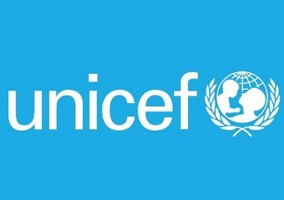Unicef UK’s income was up by 2.0% in 2019 compared to the year prior, according to its accounts for the year ending 31 December 2019.
In 2019, Unicef UK received a total of £101.4m, compared to £99.4m in 2018.
Of this, £65m was available for programmes to benefit children. This included £34.8m for specific overseas programmes or countries chosen by donors, £21.6m for Unicef core programmes and £8.1m for Unicef UK’s advocacy and programmes in the UK.
UK corporate partners donated more than £14.9m.
The charity calculates that 69% of its gross income was available for programmes after fundraising, sales and administration costs, and that over the past five years, it has spent an average of 30 pence to raise the next pound, excluding fundraising development funds.
Over the same five-year period, governance costs amounted to 1% of total income.
However, like most charities, Unicef UK is facing a challenging financial situation this year.
The accounts state: “Key income streams that are likely to be threatened in 2020 include face-to-face fundraising, income from events, particularly Soccer Aid for Unicef, which has been postponed until later in the year, and income directly associated with programme delivery, UK and internationally, that may be disrupted due to the coronavirus emergency,”.
Senior management changes
In October 2019, Mike Penrose stepped down as executive director. Nick Roseveare acted as interim executive director from October 2019 to April 2020, before Sacha Deshmukh took up the role on a permanent basis.
Three people at the charity were paid between £100,001 and £110,000 in 2019, whereas in 2018 the highest paid individual received between £120,001 and £130,000.
The remuneration of the highest-paid employee in Unicef UK was 3.8 times the median remuneration of the workforce.
Fundraising complaints rose by 8% on previous year
In 2019, Unicef UK received a total of 658 complaints, of which 563 related to fundraising activities.
This represents an increase in fundraising complaints of 8% compared to 2018, when 519 complaints were received.
In 2019 the charity's target was to resolve complaints within 10 days. This was achieved in 93% of cases, with “the remaining 7% being more complex cases that took longer to resolve”.
Reserves policy unchanged by Covid-19
The accounts state that the charity's policy on reserves is to maintain a general fund at a level that ensures it is able to meet its financial commitments and obligations as they fall due, fund unexpected expenditure when unplanned events occur, and safeguard the charity from uncertainty over future income.
They say the appropriate level of reserves are set at an amount sufficient to cover unfunded expenditure from unrestricted funds for a period of four months in the event of a significant fall in income.
General funds at the balance sheet date amounted to £2.65m, which was consistent with the reserves policy.
Covid-19 was considered in the accounts as a post balance sheet event, but the decision was made to leave the reserves policy unchanged.
“Our latest forecast position indicates the level of reserves retained at the end of 2019 remains appropriate and provides sufficient funds, in line with our policy,” the accounts state.
Strategic Plan for 2018 to 2022
The accounts state that Unicef UK's 2018 to 2022 Strategic Plan provides the framework to “continue to deliver increasing income, influence and impact”.
The four strategic objectives at the centre of the plan are to achieve exceptional public engagement, build on great partnerships, develop tomorrow’s supporters and build an organisation for the digital age.
Related articles












